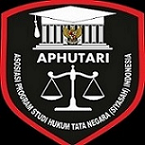Tinjauan Hukum Pidana Islam Terhadap Perjanjian Sebagai Hukuman
Miska sahri hsb & Dermina Dalimunthe* -
Institut Agama Islam Negeri Padangsidimpuan Fakultas Syari’ah Dan Ilmu Hukum, Indonesia
Abstract
Theft is a type of crime regulated in positive law in Indonesia, the implementation of the sanctions using the provisions in the Criminal Code (KUHP). However, this is as applies in the life of the people of Mompang Julu Village, Kec. North Panyabungan imposes sanctions for perpetrators of theft based on the Criminal Code as well as customary law as additional penalties for perpetrators of criminal acts of theft.From these problems, the author wants to know how the witness of theft in Mompang Julu Village, Kec. Panyabungan Utara and how the review of Islamic criminal law on additional penalties in cases of theft in Mompang Julu Village, Kec. Panyabungan Utara.The type of research used in this research is field research, namely the preparation of going directly to the field to research a problem, the data used are primary and secondary data, data collection methods are literature study methods, documents, interviews and direct observation. The data collected is analyzed using qualitative descriptive methods that are inductive and deductive, which is an effort to find existing facts and analyze them according to existing library materials.The results of this study state that, 1. the crime of theft in the village of Mompang, Julu, kec. North Panyabungan is settled by positive law based on the provisions of the Criminal Code (KUHP) and customary law in the form of an agreement. 2. Review of Islamic Criminal Law against the agreement as an additional punishment in the criminal case of theft in Mompang Julu Village, Kec. Pangabung Utara is in accordance with its application in the rules of Islamic law, namely there may be additional punishment based on the majority of the opinions of scholars who refer to the hadith of the Prophet SAW in a narration from Bahz bin Hukaim which talks about people who are reluctant to pay camel zakat, and the narration from Amr bin Syu ' disgrace that speaks of someone taking fruit
Keywords
pidana, hukum, adat.
References
a. Sumber Buku Al Faruk, Asadulloh Hukum Pidana Dalam Sistem Hukum Islam, Jakarta Selatan: Ghalia Indonesia, 2009 Bakri, Moh Kasim Hukum Pidana Dalam Islam, Semarang: Ramadhani,1958 Departemen Agama, Jakarta: Bayan Qur’an , 2012 Hanafi, Ahmad Asas-Asas Hukum Pidana Islam, Jakarta: Bulan Bintang, 1993 Mardani, Sanksi Potong Tangan Bagi Pelaku Tindak Pidana Pencurian Dalam Perspektif Hukum Islam, Jurnal Hukum Vol. 15 No. 2 (2008) Santoso, Topo Tindak Pidana Dalam Syari’at Islam, Jakarta: Rajawali Pers, 2016 b. Sumber Jurnal Gunawan, Hendra. Kitab Undang-Undang Fikih Jinayah (KUFJ). Jurnal El-Qanuniy: Jurnal Ilmu-Ilmu Kesyariahan Dan Pranata Sosial 3, no. 2 (2017): 146. ———. Korupsi Dalam Perspektif Hukum Islam. Yurisprudentia: Jurnal Hukum Ekonomi 4, no. 2 (2018): 11. Rasyid, Arbanur. Kesaksian Dalam Perspektif Hukum Islam. Jurnal El-Qanuniy: Jurnal Ilmu-Ilmu Kesyariahan Dan Pranata Sosial 6, no. 1 (2020): 30. Siregar, Sawaluddin. Munâsabât Al-Qur’an Perspektif Burhanuddin Al-Biqâ’i. Yurisprudentia: Jurnal Hukum Ekonomi 4, no. 1 (2018): 87. Siregar, Syapar Alim. Keringanan Dalam Hukum Islam. Jurnal El-Qanuniy: Jurnal Ilmu-Ilmu Kesyariahan Dan Pranata Sosial 5, no. 2 (2019): 284.
DOI:
https://doi.org/10.24952/el-thawalib.v2i2.3387
Refbacks
- There are currently no refbacks.
Jurnal El-Thawalib has Indexed by:










Editorial Office Board :
Kampus UIN Syekh Ali Hasan Ahmad Addary Padangsidimpuan
Jl. T Rizal Nurdin No.Km 4, RW.5, Sihitang, Padangsidimpuan Tenggara, Kota Padang Sidempuan, Sumatera Utara 22733
 Jurnal El-Thawalib is licensed under a Creative Commons Attribution-ShareAlike 4.0 International License.
Jurnal El-Thawalib is licensed under a Creative Commons Attribution-ShareAlike 4.0 International License.
View My Stats









 Jurnal El-Thawalib is licensed under a Creative Commons Attribution-ShareAlike 4.0 International License.
Jurnal El-Thawalib is licensed under a Creative Commons Attribution-ShareAlike 4.0 International License.





